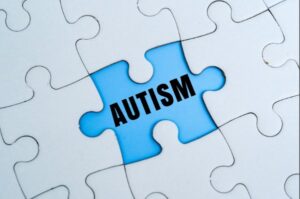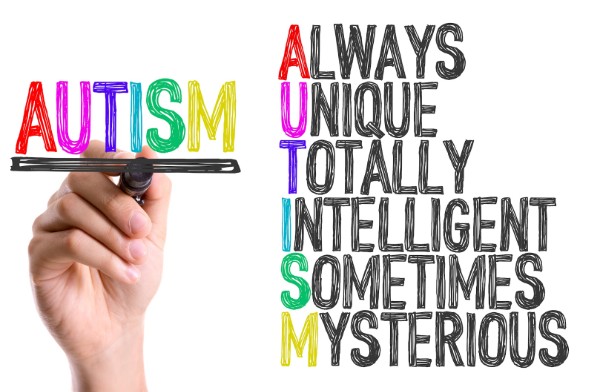Autism Evaluation for Adults
What Is Autism?
Autism is a neurodevelopmental condition that affects how a person processes social interactions, sensory input, and daily routines. It is a different way of experiencing the world. Autism is often diagnosed in childhood, but many individuals—especially those who learned to adapt or mask their differences during childhood and adolescence—do not receive a diagnosis until adulthood.
Autism affects each person differently. Some autistic adults find social situations confusing or exhausting. Others experience sensory sensitivities, such as being overwhelmed by certain sounds, lights, or textures. Many develop deep, focused interests that bring them joy and purpose. Others rely on routines and predictability to feel grounded in an often chaotic world.
If you’ve ever wondered why certain experiences seem more difficult for you than for other people—why social interactions feel like navigating an unspoken script, why unexpected changes cause distress, or why the world often feels too loud or too fast—you may be seeking answers that a formal psychological evaluation can provide.
 Recognizing the Signs of Autism in Adulthood
Recognizing the Signs of Autism in Adulthood
Autism in adults does not always look the way people expect. Because many diagnostic models were designed and based on research focused on children—often boys. Autistic adults, especially those who do not fit stereotypical autistic presentations, are often overlooked. This is particularly true for those who:
- Have spent years masking their differences, mimicking social norms to blend in.
- Are highly verbal but still struggle with reading social cues or understanding unspoken rules.
- Experience intense sensory sensitivities but have been told they are “too sensitive” or “overreacting.”
- Prefer structure and predictability and find spontaneity or sudden changes stressful.
- Have a deep passion for specific interests, sometimes to the point of being called “obsessive” or “too focused.”
- Find socializing exhausting, even if they enjoy meaningful connections.
- Struggle with executive functioning, such as time management, organization, or switching tasks.
If any of this resonates with you, you may have spent years wondering why you feel “different” or why certain aspects of life seem more difficult than they appear for other people. Recognizing autism isn’t about labeling—it’s about understanding yourself with clarity and compassion.
Misdiagnoses and the Challenge of Rule-Outs
For many adults, the journey toward an autism diagnosis is complicated by misdiagnoses or overlapping traits with other conditions. It’s common for autistic individuals to have previously been diagnosed with:
- Anxiety disorders (social anxiety, generalized anxiety, panic disorder)
- ADHD (attention-deficit/hyperactivity disorder)
- Obsessive-compulsive disorder (OCD)
- Personality disorders, such as borderline or avoidant personality disorder
- Mood disorders, such as depression or bipolar disorder
 While some autistic adults also have these conditions, many are misdiagnosed because traditional diagnostic models were not designed with autistic adults in mind. Since many autistic people experience anxiety due to social overwhelm, they may be diagnosed with only social anxiety disorder instead of autism. Those who have difficulty regulating emotions may be misdiagnosed with borderline personality disorder, even though their struggles stem from sensory overload or communication differences rather than unstable identity or fear of abandonment.
While some autistic adults also have these conditions, many are misdiagnosed because traditional diagnostic models were not designed with autistic adults in mind. Since many autistic people experience anxiety due to social overwhelm, they may be diagnosed with only social anxiety disorder instead of autism. Those who have difficulty regulating emotions may be misdiagnosed with borderline personality disorder, even though their struggles stem from sensory overload or communication differences rather than unstable identity or fear of abandonment.
A thorough autism evaluation is essential to distinguish autism from other conditions and ensure an accurate diagnosis. This process looks beyond social struggles to assess sensory processing, executive functioning, communication patterns, and cognitive styles—providing a full picture of how you experience the world.
The Benefits of a Diagnosis: Understanding Yourself with Clarity
For many adults, receiving an autism diagnosis brings validation and relief. It allows them to reframe their experiences, not as personal failures, but as natural differences in how their brain processes the world. A diagnosis is not about changing who you are—it’s about understanding yourself more fully.
An evaluation can provide:
- A clear understanding of why you experience the world the way you do.
- A framework for self-compassion, helping you recognize that past struggles were not your fault.
- Access to support and accommodations that can help make life more manageable.
- A sense of community, as many diagnosed adults find connection in neurodivergent spaces.
Psychological testing can offer answers to lifelong questions and open the door to self-acceptance.
Moving Forward: Psychotherapy and Support for Autistic Adults
Understanding autism is just the beginning. Therapy can provide a nonjudgmental space to unmask—to exist without performing, to process past experiences of misunderstanding, and to develop strategies that align with your needs.
Therapy can help with:
- Managing sensory sensitivities and finding ways to regulate overwhelming experiences.
- Developing communication strategies for friendships, relationships, and the workplace.
- Processing past experiences of masking or feeling misunderstood.
- Building a self-care routine that honors your energy levels and sensory needs.
- Exploring identity and self-acceptance without the pressure to conform.
Many autistic adults have spent years feeling like they are “too much” or “not enough” in some way. But autism is not about being “too” anything—it’s about having a unique way of thinking, sensing, and feeling that deserves to be understood and supported. You do not have to force yourself to fit into expectations that were not designed with you in mind. If you are seeking answers, validation, or a space to explore what autism means for you, we are here to help.
Please call our main number to get started on your evaluation: 763-746-0842.
(For Insurance, check coverage for Shawna M. Benson, PsyD, LP, Supervisor at Soul Work Counseling)

